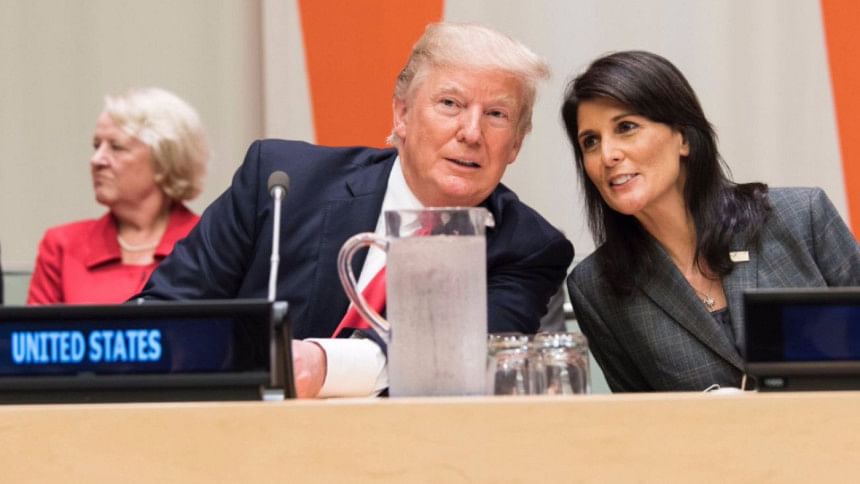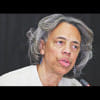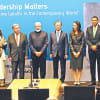A collective stand by nations despite Trump's threats

The United Nations General Assembly on December 21 passed a resolution rejecting the Trump administration's decision to recognise Jerusalem as Israel's capital. Despite sharp warnings from the administration, 128 nations voted in favour of the resolution, while nine nations voted against it alongside 35 other nations that abstained from voting. Delegations from the rest of the 21 nations—out of the 193 UN members—were absent.
Donald Trump recently threatened that his administration might be cutting the "millions of dollars, even billions of dollars" in foreign aid to the countries that would vote in favour of the resolution, which called to reject the Trump administration's decision which also wants to move the US embassy of Israel from Tel Aviv to Jerusalem. He further added that the US could benefit from saving money it gives out to other countries as foreign aid.
Trump's threat to the countries—which are either sponsoring, or voting in favour of, the UN resolution rejecting Trump's announcement—sounds a lot similar to what the former US President George W Bush had said following the 9/11 twin-towers attacks and prior to US-led NATO's war in Afghanistan.
"Every nation, in every region, now has a decision to make. Either you are with us, or you are with the terrorists," said George W Bush nine days after 9/11—a threatening gesture to its allies and to the international community, warning them not to stand against his administration's decision to start a war in Afghanistan.
A day before the UN resolution voting—precisely on December 20—Nikki Haley, the US ambassador to the UN, tweeted: "At the UN we're always asked to do more & give more. So, when we make a decision, at the will of the American ppl [people], abt [about] where to locate OUR embassy, we don't expect those we've helped to target us...."
Nikki Haley had been continuously urging nations across the world not to vote in favour of the UN resolution. She said, following the resolution brought by a number of countries to the UN, that the Trump administration was closely observing the developments with regard to the resolution and would be "taking names" of the countries that would vote in the resolution's favour.
Through such statements, the Trump administration wanted to buy votes with the guarantee of continued US aid to nations across the world.
The threats, though, had failed to take a sharp reality into account. The aid that the US has been providing to many countries worldwide are not a favour from the US to these countries. Rather, the aid is disbursed in order to safeguard—either directly or tacitly—US national interests.
For example, the aid to Egypt, which is one of the largest US foreign aid recipients, is given largely to safeguard interests in the greater Middle East, including the safety of its all-weather-ally Israel and the containment of militancy that threatens vital US interests in the region.
The US either lacks resources or is unwilling to provide these resources—including a large number of combat soldiers—for safeguarding its concerns in the Middle East. The US, therefore, provides financial and other aid in order to avail those resources from the regional countries. Iraq, for example, receives US aid not as a favour, but for training and equipping Iraqi armed forces to tackle anti-US militancy and other threats to the US within the country. The US aid given to the Iraqi government has been visibly used in its fight against ISIS, which posed a direct threat to US's interest within Iraq and in the region.
Despite all the threats from Trump and Nikki, the UN eventually passed the resolution. The results of the resolution appear to be an outright victory for the Palestinians. However, the voting result is a minor victory for the US too, as it managed to sway 65 nations to either cast votes against the resolution, to refrain from voting or to remain absent. Some of these 65 nations had previously voiced favour for the resolution, yet subsequently gave-in due to the threats repeatedly issued from the US ambassador to the UN, Nikki Haley, and from Trump himself.
Bahauddin Foizee is an international affairs columnist and a legal practitioner based in Dhaka. He regularly writes on environment, geopolitics, law and refugee scenario.










Comments